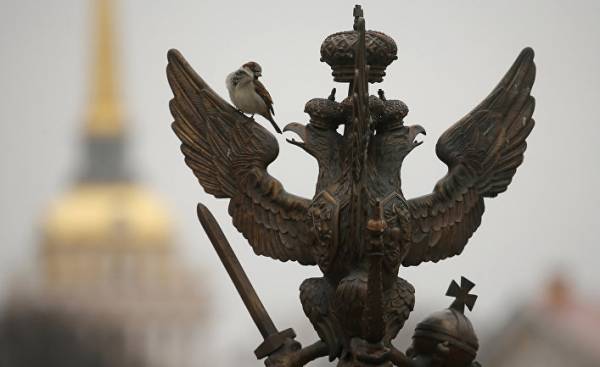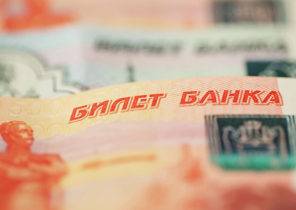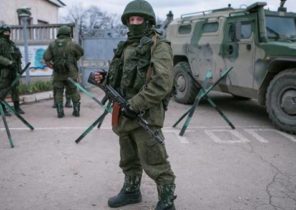
Double-headed eagle, symbol of Russia, as well as possible illustrates the new strategy of Moscow in international relations: it seeks to become not only a geopolitical, but also “cosmopolitan” player who leads the party, not only in chess, but poker.
The Russian strategy is often referred to as chess. The course of the Kremlin traditionally relies on a variety of scenarios that allows it to adapt to change while keeping the more global plans. But can we confine this perception of Russia? She always acts without a hint of improvisation? Such an approach seems too limited.
Think of the symbol of Russia, double-headed eagle, which looks simultaneously in two opposite directions. This should draw attention to the perception of space, action and the world is not on one but on several levels. If chess strategy is accepted by all, what about poker?
Although Russia has recently taken a number of actions in the geopolitical sphere, with the movement of troops and movement of equipment, it does not close any possibility of intervention in the “cosmopolitan” world: it is less tangible, consists of Internet connections, banking transactions at the click of a button, hacker attacks, events that (almost) do not require human participation (like sending people into a theater of hostilities) and not be obliged to engage in geopolitics.
From planning to opportunism
Consider the situation in Ukraine. During the revolution on the Maidan we saw the emergence of the Ukrainian identity, which was directed against associated with the Maidan provisional government (it was quickly labeled as “fascist”) of the Ukrainian identity.
This manipulation recorded at the expense of Russia, but whether she was the instigator or just picked up the process? Apparently, the initiators of the idea of differentiation between the population of Donbass and Kiev became the local oligarchs, who sought to protect their assets from the new government. The results exceeded all expectations: panicked people was met with distrust of the representatives of the Maidan.
The authors of the project soon produced the situation out of control, and she moved in more skilled hands, is a successful example of opportunism. Such actions were probably premeditated, but in a different form, and control of the situation was captured perfectly. All this tells us how about the ability to work in the long term, and the ability to adapt in the shortest possible time, to operate outside the framework of the original plan, but for the sake of the overall strategy.
Information strategy in action
In recent months we have witnessed a series of crises — the deployment of troops in Syria, attacks on international forces, France, USA, Russia. Overall, the West is not eager to send ground troops, which is associated with the inevitable in military operations the risk of loss and a desire not to exacerbate an already tense international relations.
In Ukraine, the supporters of Kiev have accused Russia of malicious acts, but rather to use economic sanctions, not to send people to the front. They chose “cosmopolitic”, not geopolitics, considering that Russia will remain stuck in the past. This did not happen: by cosmopolitic was deployed wide information strategy, which complicated the situation.
In Syria has been posted Russian soldiers, and political actions were accompanied by monopolistically, information campaign. Note in particular the active use of drones for filming conflict with the provision of personnel for television and Internet sites. Their quality was so high that the Western media bought them for their briefing notes.
Recent high-profile events (the revelations of Wikileaks, hacker attacks during the presidential campaigns in the United States and France) contribute to the sense of collaboration and the cosmopolitan geopolitical sphere. In addition, although geopolitics is changing, these changes are slower than in cosmopolitics: the Internet reduces the role of distance and time thanks to their flexibility and globalization links.
The fact that Russia has confirmed their skills, proves her ability to adapt, to be both a chess strategist and opportunistic poker player, double-headed eagle.
To Force The West
Western countries and especially the US have military superiority over Russia and produce on defense heavily. Nevertheless, Moscow “jumped” from geopolitics to cosmopoliticum, forcing the West to take a not too pleasant for his options and paced in terms of active (if not exclusive) use of cosmopolitic. At the level of geopolitics, this translates into sending people to places in order not to take positions in terms of power projection.
Thus the reduction of Russia’s strategy to methodically crafted plan, it would probably be too narrow approach. Proof, apparently, lies in the fact that opportunism has its place in Russia’s actions: we are talking about the ability to be executed simultaneously on several fronts and in several camps, while demonstrating flexibility, ability and efficiency. All this will undoubtedly become a trump card for Russia on the background of an emerging defense of the pace of events and the frightening unpredictability of the President of the United States.
Who was on a visit to Washington, Minister of foreign Affairs of Russia could not hide his surprise upon hearing the news of the resignation of FBI Director James Komi (James Comey): “he was removed from office? Are you kidding me?” This replica will definitely be consequences, but Russia will probably once again take advantage of its adaptability, and it is possible that we will be stunned a lot more of her.







